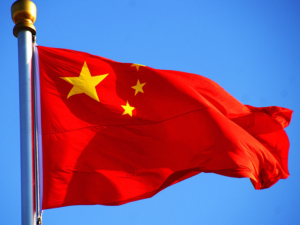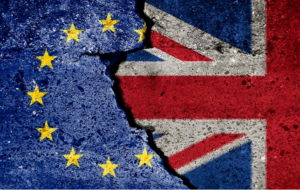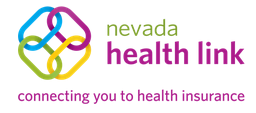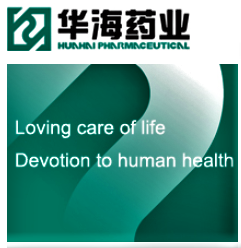- China drug scandals highlight risks to global supply chain (cnbc.com)
The drug safety scandals...have underlined the risks to international consumers posed by weak oversight in China, the world's largest supplier of active pharmaceutical ingredients...The European Medicines Agency and the US Food and Drug Administration issued alerts over a cancer-causing ingredient used in a blood pressure medication, supplied by Chinese company Zhejiang Huahai, resulting in a recall of affected drugs...Then Beijing announced that hundreds of thousands of substandard vaccine doses had been sold in China, prompting a public outcry. Senior executives were arrested at the pharma company, Changsheng Biotech, which was also accused by authorities of forging data during the production of rabies vaccines...China is home to thousands of API producers, with exports worth $29bn last year...its producers supply ingredients for generic drugmakers such as Teva Pharmaceutical and multinationals including Johnson & Johnson and Novartis. About 80 percent of APIs used in the US come from China and India…Warnings to Chinese companies published by the FDA and EMA in recent years show that dozens have violated standards, mainly relating to record-keeping during the manufacturing process. In several cases the exporters shipped large volumes of product before the infractions were discovered...
- More drugmakers build Brexit stockpiles as EU agency faces exodus (reuters.com)
Sanofi and Novartis said...they planned to increase stockpiles of medicines in Britain in preparation for potential disruption if the UK crashes out of the European Union without a deal...the European Medicines Agency...warned of bigger than expected staff losses and cuts in some activities as a result of having to move from London to Amsterdam due to Brexit...Supplies of thousands of medicines are at risk of disruption if Britain leaves the EU without a deal, forcing manufacturers to prepare duplicate product testing and licensing arrangements to ensure their drugs stay on the market...The European Medicines Agency...expressed “serious concerns” over the availability of some 108 medicines that are manufactured exclusively in the UK.
- EU drug regulators step up work to prepare for ‘no deal’ Brexit (reuters.com)
Drug regulators across Europe are hiring extra staff and increasing their workload as the role of British experts in the EU-wide system of medicines supervision winds down ahead of Brexit...Britain has already stopped taking on new projects that will extend beyond March 29, 2019 and is preparing to hand over existing drug review work to other countries...Despite a vote by UK members of parliament this week calling for Britain’s continued participation in the Europe regulatory network for medicines, there is no certainty that any such deal will be reached...That reflects the wider lack of clarity over Britain’s future relationship with the world’s biggest trading bloc after it leaves the EU next March...The Brexit-induced disruption also comes at a time when regulators are having to grapple with oversight of a range of new health technologies, such as gene therapy, and a slew of big data on health outcomes...Global drug companies, including UK-based GlaxoSmithKline and AstraZeneca, have been vocal in calling for continued close EU-UK ties after Brexit. The issue is also important to many Japanese drugmakers that have made Britain their European base.
- EMA Report: Clinical Data Published on 50 Medicines in One Year (raps.org)European Medicines Agency Clinical Data: Online Access to Clinical Data for Medicinal Products for Human Use (clinicaldata.ema.europa.eu)Clinical data publication ( Policy 0070) report Oct 2016 - Oct 2017 (ema.europa.eu)
The European Medicines Agency...published its first report on implementing its policy on the publication of clinical data whereby researchers, academics and others can access data from clinical reports submitted by pharmaceutical companies to EMA for new medicines as of 1 January 2015...The 27-page report covers one year from the launch of EMA’s clinical data website on 20 October 2016, and lists the 50 medicines for which clinical data were published...EMA is the only regulatory authority to provide open access to clinical data submitted by companies in support of their marketing authorisation applications...The report unveils the documents published, the amount of commercially confidential information redacted and the anonymization techniques used...EMA accepted about one third of CCI redactions proposed by pharmaceutical companies, though only 0.01% of 1.3 million pages published contained CCI redactions...anonymization techniques to protect personal data, the report suggests conducting a “proper assessment” of the impact of the anonymization technique on data utility and improving the quality of the anonymization reports...
- FDA seals loophole that allowed some drugmakers to avoid pediatric clinical trials (medcitynews.com)
PREA loophole had allowed companies to receive orphan drug designations for diseases common in adults...The Food and Drug Administration moved...to close a loophole that had inadvertently excused some drugmakers from having to conduct clinical trials in children for drugs to treat diseases that commonly affect adults...the FDA announced that it had finalized a draft guidance...intended to close a loophole in the Pediatric Research Equity Act that allowed drug companies making medicines for non-orphan diseases in adults – meaning those affecting more than 200,000 patients – to get pediatric subpopulation designation. Consequently, companies were exempt from conducting the clinical trials in children that PREA would normally have required...“Addressing the inadequate testing of drugs in pediatric populations has been a priority for the FDA, the medical community and Congress and has led to important laws to ensure this important, vulnerable population is not overlooked,” FDA Commissioner Scott Gottlieb said...
- Mental health providers concerned about proposed limits on therapy sessions for Medicaid patients without prior approval (thenevadaindependent.com)Nevada Medicaid shift could impact continuity of mental health care (reviewjournal.com)
Nevada Medicaid will decide next month whether to impose additional requirements for patients to undergo therapy on an ongoing basis, a move the state says will increase accountability and ensure people are getting the care they actually need...mental health providers across the state are decrying as yet another barrier to access to mental health care for a vulnerable population...The Division of Health Care Financing and Policy...to decide whether to require psychologists, therapists and other mental health professionals to provide written documentation demonstrating medical necessity and receive prior approval to continue providing talk therapy or neurotherapy…State officials describe the policy as an effort to be both fiscally and socially responsible, ensuring that providers are only getting paid for services that are actually necessary and that patients are receiving the right treatment for their condition...opponents...argue that it will damage an already-thin safety net for patients by imposing additional administrative burdens on providers…
- Nevada’s health insurance exchange boosts enrollment assistance funding as federal government scales back in other states (thenevadaindependent.com)Nevada Exchange Continues Broker /Agent and Navigator /In -Person Assister Grant Program for Plan Year 2019 (d1q4hslcl8rmbx.cloudfront.net)Statement from Nevada Exchange Executive Director , Heather Korbulic on Centers for Medicare & Medicaid Services Navigator budget cuts (d1q4hslcl8rmbx.cloudfront.net)
While most states are still grappling with the Trump administration’s decision earlier this month to slash funding for a program that helps people purchase health insurance on the exchange, Nevada is gearing up for open enrollment later this year by expanding the enrollment assistance it offers to consumers...Nevada’s health insurance exchange announced earlier this month that it would be nearly doubling the number of brokers, navigators and in-person assister organizations available to help walk people through the process of signing up for health insurance this year, calling the assistance program a “critical component” in an oftentimes “intimidating and complicated process.” That announcement stood in stark contrast to a decision by the Centers for Medicare and Medicaid Services a little more than a week later to scale back the navigator program for the fully federally facilitated marketplaces in 34 other states, saying that “the need for federally funded Navigators has diminished.”
- Cooking Pots and Household Power Tools: FDA Warns California Drugmaker (raps.org)
Food and Drug Administration’s...warning letter for BioDiagnostic International featured an odd note about halfway down the CGMP violations: “You use kitchen cooking pots and household power tools to manufacture your drug product used for biopsy procedures.”...The surprising detail – part of one of four CGMP violations cited – comes as an FDA investigator further found an employee food prep station within its Brea, CA-based drug manufacturing area “with no separation between open manufacturing equipment, cooking utensils, and personal-use items.”...Parts of the facility to manufacture product...were also “open to the outdoors,” which FDA said increases “the likelihood of your drug products becoming contaminated.”...
- Viral content: vaccine scandal tests Beijing’s grip on information control (reuters.com)
A Chinese vaccine scandal has laid bare a new challenge Beijing faces in its long-running battle for information control: blogs and online articles by independent writers capable of unleashing a storm of public fury...The outrage over safety lapses by Changsheng Bio-technology Co Ltd in some of its vaccines for children came six days after the issue was flagged in regulatory filings, triggered instead by a July 21 article posted on the popular WeChat messaging platform...Titled “Vaccine King” and posted to a WeChat account managed by former journalists, it critiqued business practices by Changsheng’s chairwoman and was read tens of thousands of times before being deleted the next day...The enormous impact of the so-called “zi meiti”, or “self-media” article marks a threat to efforts by China’s ruling Communist Party to tighten its grip over content online...The article touched a nerve in a country already scarred by a long history of drug and food scandals. A day later Chinese social media was ablaze...For China, keeping a tight grip on the flow of information is seen as key to maintaining social stability in the world’s most populous nation...
- Blood Pressure Medicine Is Recalled (nytimes.com)
The Food and Drug Administration has announced a voluntary recall of a widely prescribed blood pressure medication made in China, reviving fears about the safety of imported drugs...Three companies that sell the generic drug, valsartan, in the United States agreed to recall it after the F.D.A. said it might be tainted by N-nitrosodimethylamine (NDMA), considered a probable human carcinogen. The agency is still investigating, but said the contamination was believed to be related to changes in the way that valsartan was manufactured...All of the valsartan that is being recalled was made in China by the same company, Zhejiang Huahai Pharmaceutical Co. Ltd. It is distributed in the United States by three companies: Major Pharmaceuticals; Teva Pharmaceutical Industries, Ltd.; and Solco Healthcare... Other companies that market the drug, not subject to the recall, are Sun Pharma, Mylan, Jubiliant, Aurobindo and Hetero...The safety of imported drugs has long been debated. The F.D.A. said it would continue to investigate the levels of NDMA in the recalled products, determine the possible effect on patients who have been taking them, and assess what measures can be taken to reduce or eliminate the impurity from future batches...










